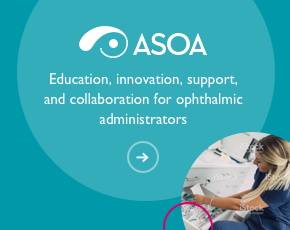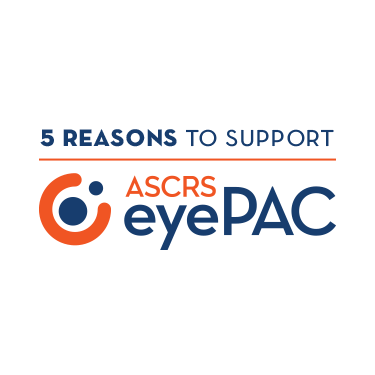House Democrats Introduce the Next COVID-19 Relief Package, the HEROES Act
On May 12, 2020, the House Democrats introduced a $3 trillion COVID-19 relief bill. H.R. 6800, the Health and Economic Recovery Omnibus Emergency Solutions (HEROES) Act, includes a wide range of initiatives and provides additional funds for existing policies. The House is expected to vote on this proposal on Friday, and it is expected to pass without Republican support. The Democrats will use this as a basis to eventually negotiate with the Senate Republicans and the Administration. However, the Republicans have indicated they are taking a pause and criticized the process.
The bill includes several provisions that have been advocated by ASCRS and the medical community including, resolving the problematic terms of the Advance Payment Program and adding additional direct financial relief for physicians and their practices.
The legislation includes the following provider relief provisions:
Medicare Accelerated and Advance Payment Program
- Extends the period before repayment begins from the current 210 days to one year
- Extends the repayment period to at least 2 years
- Reduces the per-claim recoupment percentage to 25%
- Lowers the interest rate from nearly 10% to 1%
Public Health and Social Services Emergency Fund
- $100 Billion in grants for hospitals and healthcare providers to reimburse for healthcare-related expenses or lost revenue directly attributable to the public health emergency (Provider Relief Fund)
- $75 Billion for testing, contract tracing, and other activities necessary to monitor and address the pandemic
- Specific directions for distributing the funds on a quarterly basis
Conditions for accepting the funds include:
- The recipient must agree to no balance billing,
- Funds cannot be used for executive compensation; and
- Funds cannot be accepted for losses that have been reimbursed by another source.
For employers, the bill would expand the employee retention tax credit created in the CARES Act, create a new refundable credit for fixed expenses such as rent and utilities for businesses impacted by the coronavirus, and create a new refundable tax credit for self-employed individuals who have lost a significant amount of income. It also would clarify that expenses paid with Paycheck Protection Program loans that are forgiven are eligible for tax deductions, after the IRS issued guidance stating that the expenses are not tax-deductible.
ASCRS, in conjunction with the Alliance of Specialty Medicine, has been meeting with key legislative staff through virtual hill meetings advocating for our key provider relief priorities to be addressed in the next COVID-19 package, including increasing reimbursement for post-op visits included in 10 and 90 day global services effective 2021.
The legislative text of the HEROES Act can be found here. Additionally, a one-page overview, a section-by-section summary, and a health-related provisions summary are also provided.
HHS and CMS Release Detailed Data on Provider Relief Fund and Advance Payment Program Distribution
The Department of Health and Human Services (HHS) and the Centers for Medicare and Medicaid Services (CMS) have released publicly reported data providing additional details in how federal financial support have been distributed to providers.
HHS released a detailed database with information regarding the amount providers have received from either the General and/or Rural distributions from the Provider Relief Fund. Once a provider has attested to the payments, the provider’s name, state, city, and total payment amount will be publicly listed in this database.
In addition, CMS has published additional information about the distribution of accelerated and advance payments to providers. This fact sheet details the amounts distributed through these programs by state and provider type. CMS has also released a detailed dataset listing the amount received by each provider.
Clarification on the Addition of Eye Codes to the Telemedicine List and Additional Clarification on Retroactive Payments for Audio-Only Telephone Codes
Eye Codes
ASCRS reached out to CMS regarding the requirements for the eye codes after they were added to the Telemedicine list. As you are aware, for CPT codes 99201-99215, CMS adopted a portion of the framework that they finalized for full implementation in CY 2021, where practitioners can use MDM or time for purposes of level selection. CMS verified this policy only applies to the office/outpatient E/M codes. For all other visits, including the eye exams, the requirements for billing the code are the same.
Audio-Only Telephone Visits Codes – Rates Now Equivalent to Office Visit Codes – Retroactive to March 1
CMS has indicated that MACs will be expected to automatically adjust retroactive changes to claims payment for audio-only telephone visits.
CMS also noted that it can take time to implement changes. During COVID-19, the agency did not have the usual time between publishing a new (interim) final rule and pushing out and implementing the usual change requests that happen in the normal course of events. CMS recommends that physicians give the MACs some time to catch up and then check with the MACs if they have questions.
SBA Updates Frequently Asked Questions (FAQs); Clarifies Certification Requirements for the Paycheck Protection Program (PPP)
Recent statements by the Small Business Administration (SBA) and the Department of Treasury have confused many PPP borrowers regarding certification requirements and led them to return PPP funds or consider doing so. On May 13, the SBA updated the FAQs and included FAQ 46, which addresses those concerns.
The SBA’s FAQ 46 provides much needed clarification to PPP borrowers. The SBA has created a safe harbor for PPP borrowers of less than $2 million:
SBA, in consultation with the Department of the Treasury, has determined that the following safe harbor will apply to SBA’s review of PPP loans with respect to this issue: Any borrower that, together with its affiliates, received PPP loans with an original principal amount of less than $2 million, will be deemed to have made the required certification concerning the necessity of the loan request in good faith.


